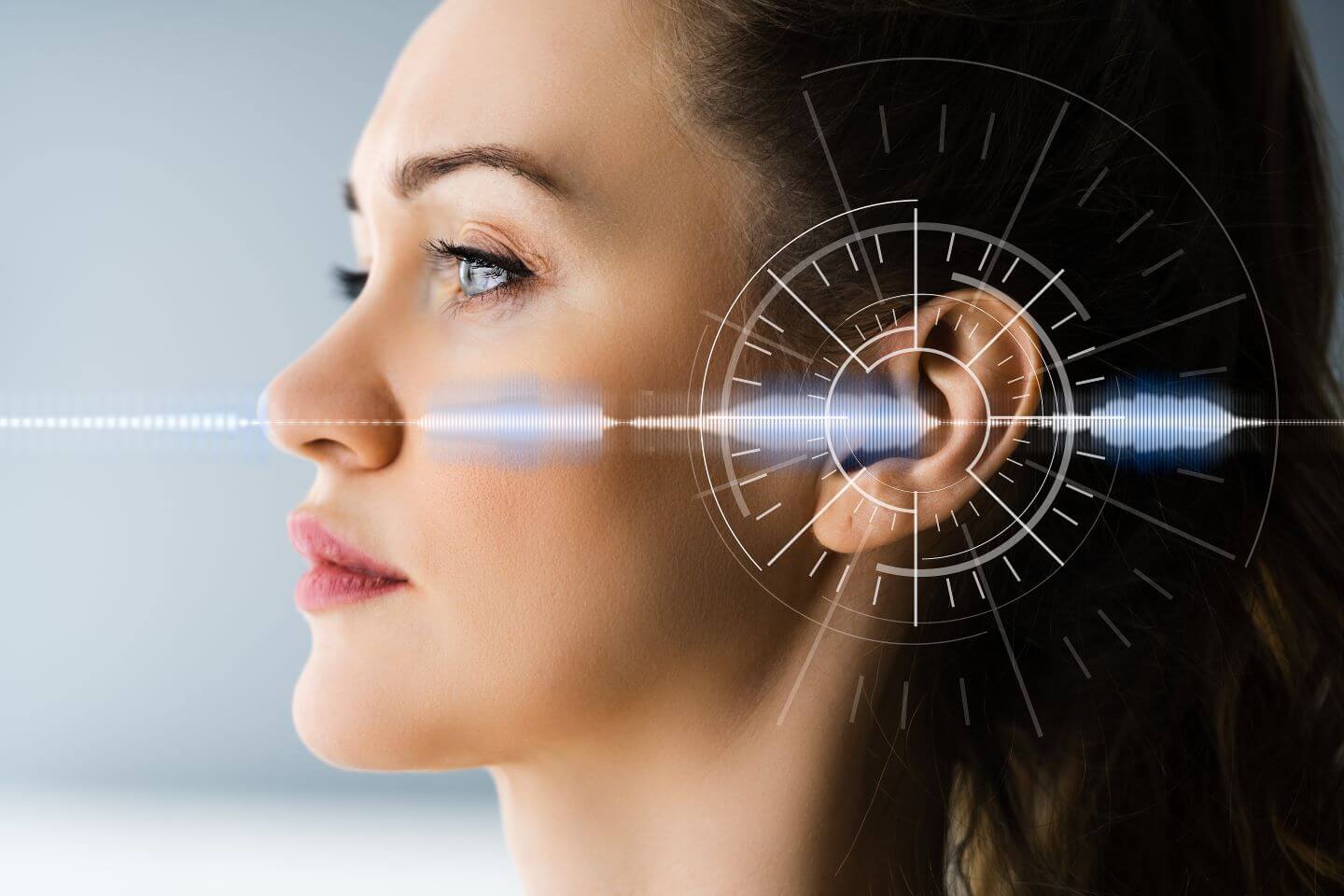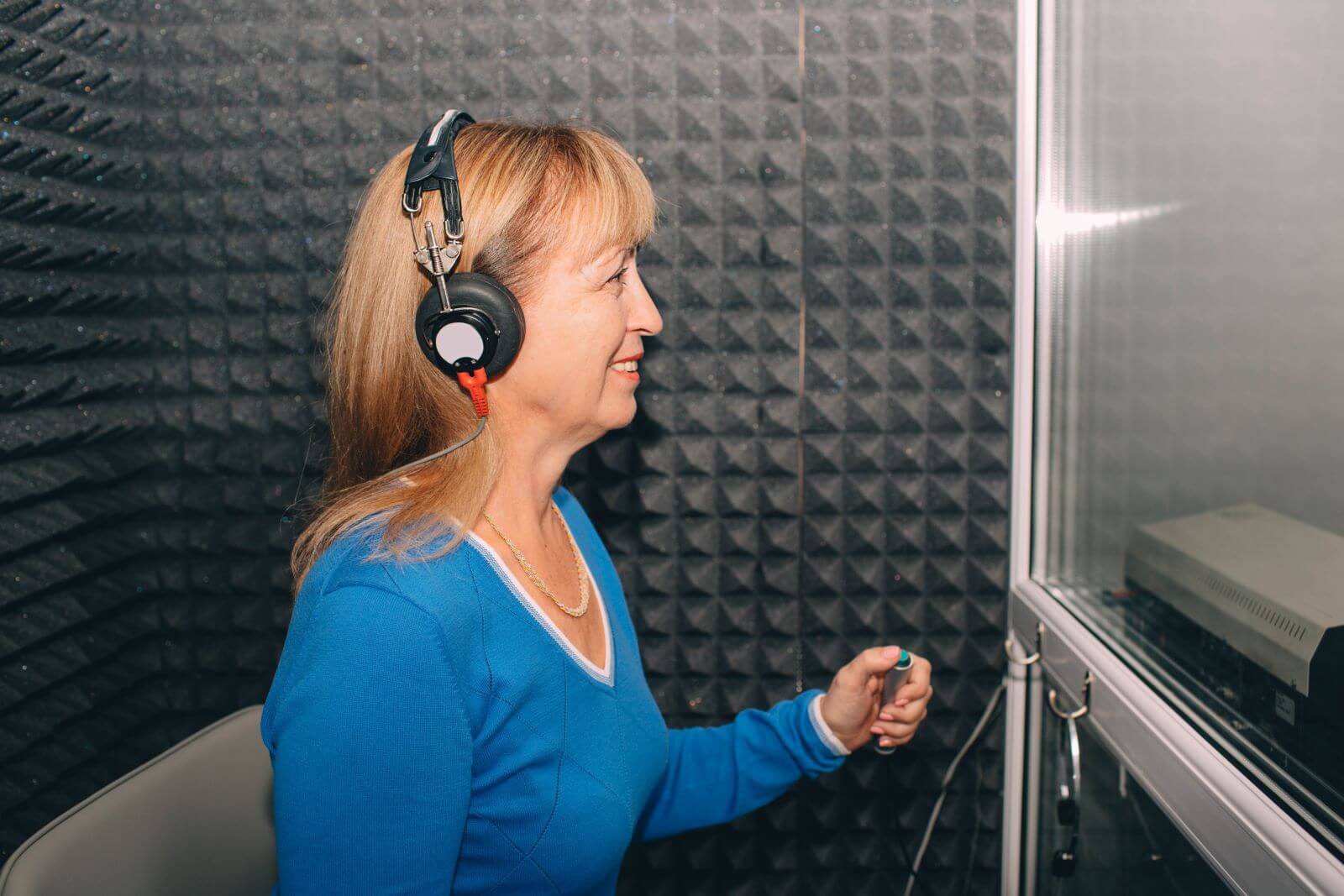Tinnitus Management
What is Tinnitus?
Tinnitus is a very common symptom suffered to some extent by 70-85% of people with hearing impairment. For most, it’s more of an irritant than a major problem, but for some, tinnitus has major influence on their well-being and causes sleeping problems, anxiety and stress. Tinnitus can be perceived as many different sounds, such as humming, ringing, or buzzing, and it can be constant or periodic and vary in loudness.
There can be many causes of tinnitus, but often the reason is unknown. Frequently it is noise induced, is related to medical disorders such as ear infections or Meniere’s disease, or may be caused by use of certain drugs. Regardless of the cause, there is a very high correlation between the presence of hearing loss and tinnitus. This correlation is probably related to the well-established principle that a peripheral disorder (such as a hearing loss) produces an increase in brain activity. In other words, the brain tries to compensate for the lack of stimulation from the inner ear.
Often, negative emotion is attached to the tinnitus, and increased attention is paid to it – making it difficult for the patient to cope. Tinnitus is often more difficult to deal with when there is uncertainty or fear involved.
Once medical evaluation has ruled out a treatable or serious disorder, education and reassurance can be extremely valuable and may be sufficient for some people. For others, there are devices and training programs that can help reduce the annoyance of tinnitus.
Tinnitus Therapy In Cleveland, Ohio
What Causes Tinnitus?
Roughly 25 million Americans have experienced tinnitus, a symptom associated with many forms of hearing problems. (It can also be a symptom of other health problems.) Tinnitus is typically caused by:
Hearing Loss – Most people who have tinnitus also have some kind of hearing loss.
Loud Noise – Exposure to loud noise can cause permanent hearing loss and tinnitus. Continued exposure can make the tinnitus and hearing loss become worse.
Medication – More than 200 medicines, including aspirin, can cause tinnitus. If you have tinnitus and you take medicine, ask your doctor or pharmacist whether your medicine could be the cause.

Tinnitus Relief, Tinnitus Treatment Options
Recent studies show that 10% to 15% of the US population, or nearly 30 million people, experience chronic or persistent tinnitus. Tinnitus has been shown to have a direct impact on a person’s emotional well-being, hearing , and ability to sleep and to concentrate, in turn influencing basic life functions such as socialization and relaxation.
Only a small number of people contact their physicians or hearing care professionals for help with their tinnitus, perhaps due to the widespread belief that tinnitus is incurable or untreatable. Yet there are several methods for treating tinnitus that can alleviate the impact it has on the patient’s quality of life.
A large-scale study by the Better Hearing Institute found that the highest rating of treatment effectiveness was achieved by hearing aids (34%) and music (30%), followed by relaxation techniques (10%). Focusing on substantial to complete relief from tinnitus (greater than or equal to 80% of symptoms), hearing aids were rated the highest (27%) followed by music (20%). Approximately 10% of subjects experienced substantial relief of their tinnitus through prescription medication, relaxation techniques, counseling, or a non-wearable sound generator. Herbs or dietary supplements were not shown to be effective in this study.
Information from Hearing Review, November 2011.
Evaluation and Treatment

